In addition to Weibo, there is also WeChat
Please pay attention

WeChat public account
AutoBeta


2024-11-17 Update From: AutoBeta autobeta NAV: AutoBeta > News >
Share
AutoBeta(AutoBeta.net)12/24 Report--
According to media reports, on December 22, Hitachi Anstemer, a subsidiary of Hitachi, which makes auto parts, was exposed for inspection violations. According to reports, the company's factories do not check or tamper with data and other violations, involving 57000 brake parts produced by the Yamanashi factory and about 10 million suspension parts at the Fukushima plant.
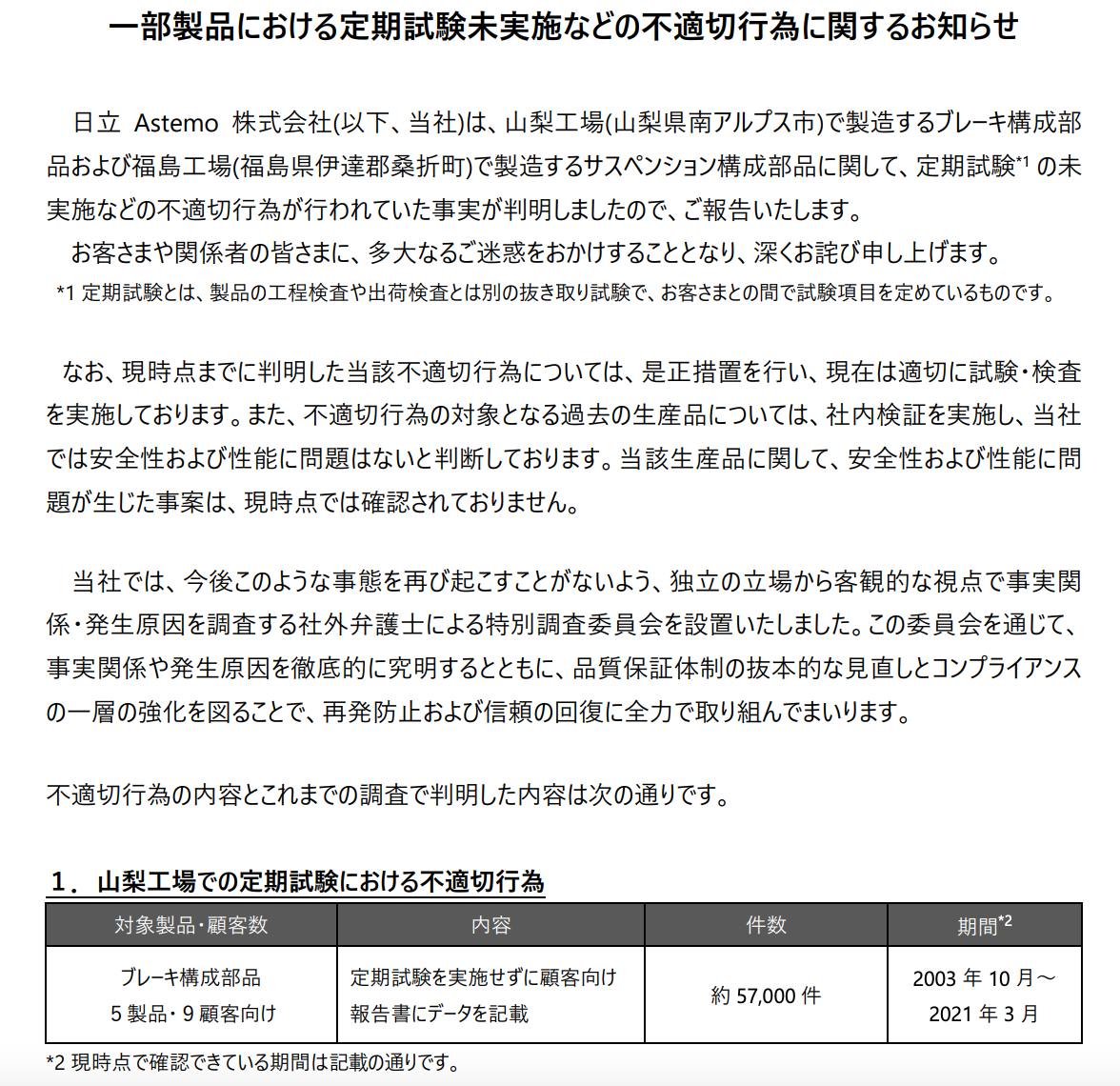
According to comprehensive Japanese media reports, among the violations exposed by Hitachi Anstemo, the violations related to brake performance were falsified data in braking tests, while the violations of suspension components were the delivery of products that did not meet the required standards.
According to the investigation, the violation was exposed for about 20 years, that is, from around 2000 to October this year, the illegal products affected 16 manufacturers, including Toyota, Nissan, Honda, Suzuki, Mazda, Subaru, Dafa Industries and so on.
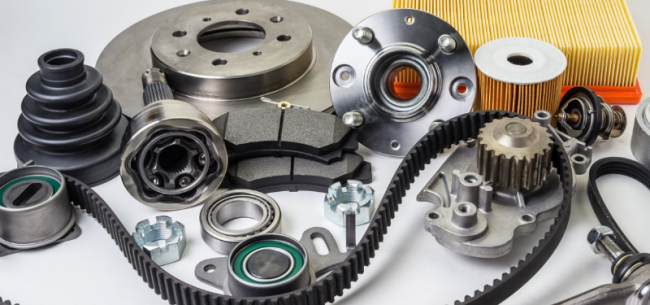
The automotive industry is concerned that when consulting the relevant information of Hitachi Anstamo Co., Ltd., the public data show that Hitachi Anstamo Co., Ltd. is mainly engaged in the development, manufacture, sales and service of automotive parts, transportation and industrial machinery systems, and the president of the legal representative & CEO is Corus. In addition, data show that Hitachi Anstemer is formed by the merger of Hitachi Automotive Systems, a subsidiary of Hitachi, and some auto parts manufacturers of the Honda Group, in which Hitachi holds a 66.6% stake in the company. Tian Technical Research Industry accounted for 33.4%.
Later, Hitachi Anstemer apologized for the incident. CEO Coles, president of Hitachi Anstamo, said at an online press conference on the 22nd: "I apologize for causing trouble to everyone."

In addition, Coles blamed the above-mentioned violations on employees' lack of awareness of the importance of inspections, inadequate monitoring systems, and the company's lack of manpower to conduct tests as required.

However, there are no safety problems with these products for the time being, which means that Toyota, Honda, Suzuki and other car companies will not recall the faulty parts.
In fact, in recent years, Japanese auto parts companies and auto companies "fraud" scandals occurred frequently, including the previously widely concerned "Takata airbag", "Shengang fraud" and "gasoline pump collective defects" and so on.
Airbags made by Takata in Japan have been recalled many times since 2015 because of hidden safety problems and become the largest recall in the history of the automobile industry. So far, the problem has not been quelled.
In 2017, Kobe Steel, Japan's third-largest steelmaker, was revealed that performance data such as the strength of some aluminum products had been artificially tampered with, which were used by Toyota and other Japanese automakers. Subaru later admitted that over the past 30 years, two of the company's factories had used unqualified inspectors to "fool" the inspection of new cars before they left the factory, recalling 255000 cars, while Subaru president Ji Yongtai bowed and apologized at a news conference.
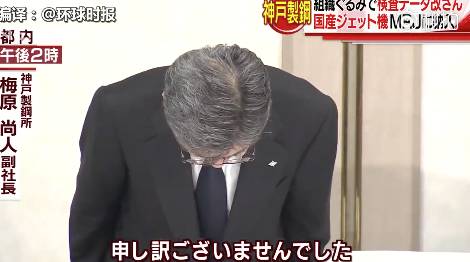
In 2020, the Japanese auto parts giant Denso Company stalled its vehicles due to defects in fuel pumps, including Toyota, Honda, Subaru, Mazda and other car companies, and more than 5 million cars were recalled. In addition, in the Chinese market, Japanese joint ventures such as Guangzhou Auto Honda, Dongfeng Honda, FAW Toyota, Guangzhou Automobile Toyota and Changan Mazda also announced large-scale recalls for this reason.
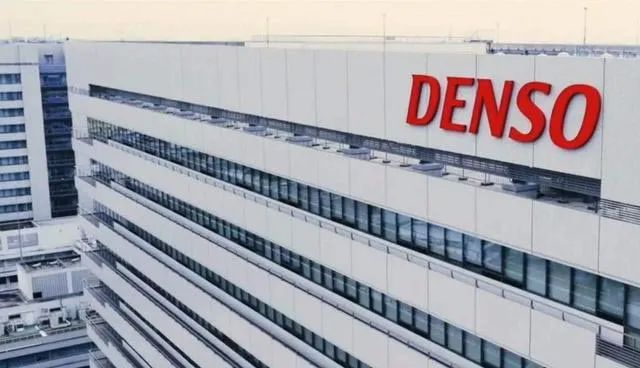
In February, dawning Brake Industry Co., Ltd., a Japanese auto parts supplier, said it found improper practices such as tampering with inspection data in brakes and parts made in domestic factories. Yasuhiro Miyaji, president of dawning Brake Industry, publicly apologized for the company's misconduct.
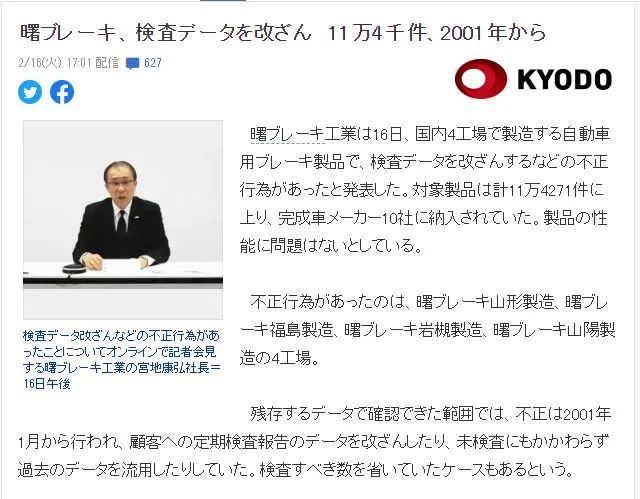
Behind the fraud incident of Japanese enterprises, senior executives frequently "bowed and apologized" in front of the camera. This action was ridiculed by netizens as "craftsman spirit". As a result, the "craftsman spirit" that once made Japanese enterprises famous all over the world became "craftsman spirit". In fact, for this enterprise, the impact is not only a matter of trust between enterprises, but also a threat to the safety of consumers' use of cars.
So far, a special investigation committee set up by the company's external lawyers will investigate the above-mentioned "Hitachi Anstemo" incident, and the results are expected to be released next year.
Welcome to subscribe to the WeChat public account "Automotive Industry Focus" to get the first-hand insider information on the automotive industry and talk about things in the automotive circle. Welcome to break the news! WeChat ID autoWechat
Views: 0
*The comments in the above article only represent the author's personal views and do not represent the views and positions of this website. If you have more insights, please feel free to contribute and share.





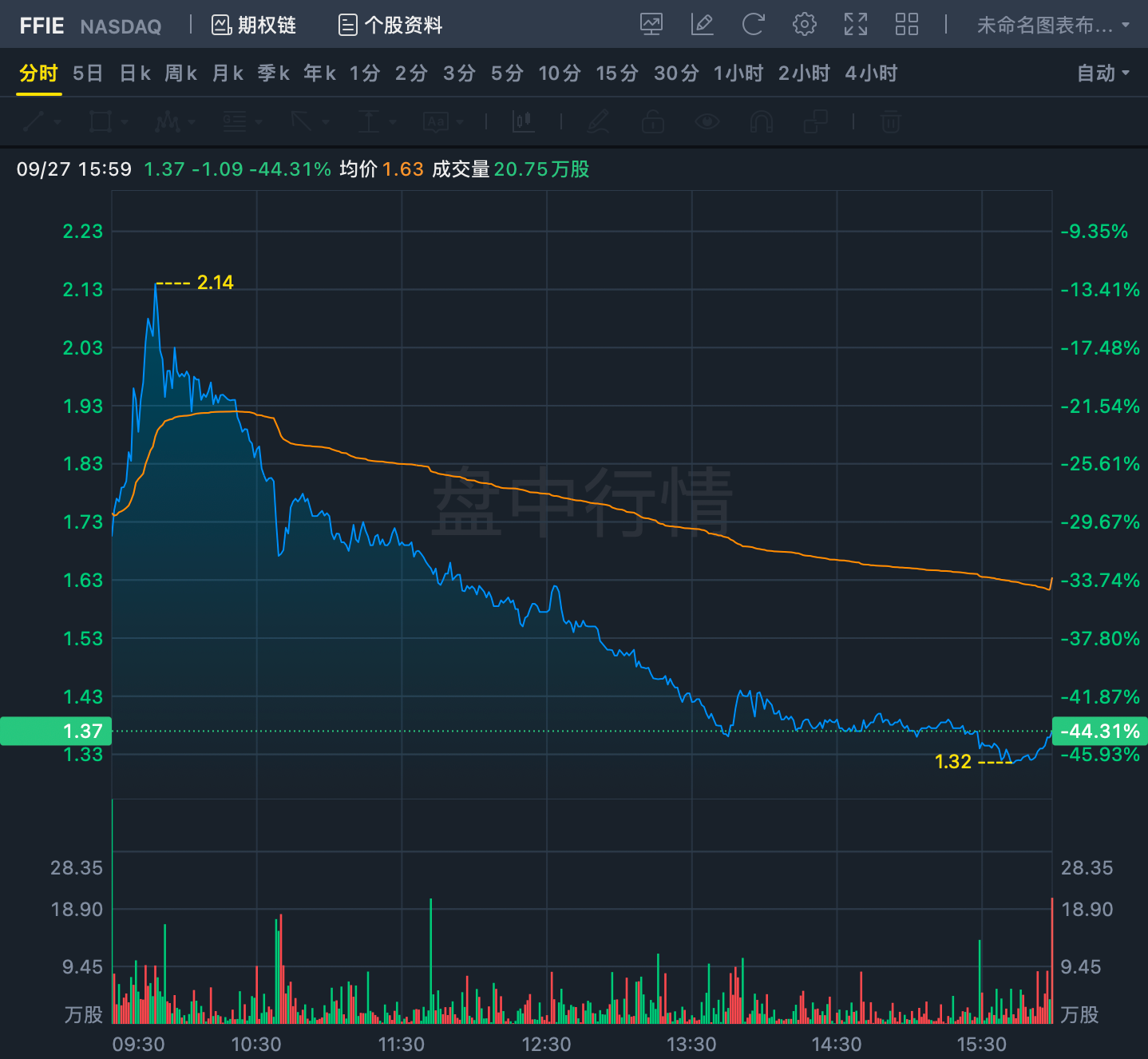
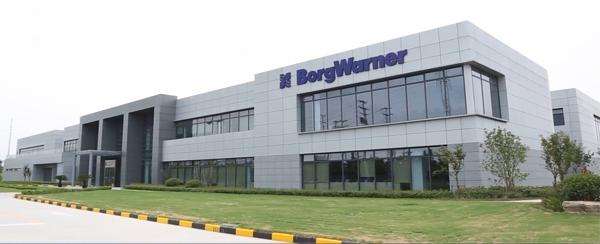




© 2024 AutoBeta.Net Tiger Media Company. All rights reserved.